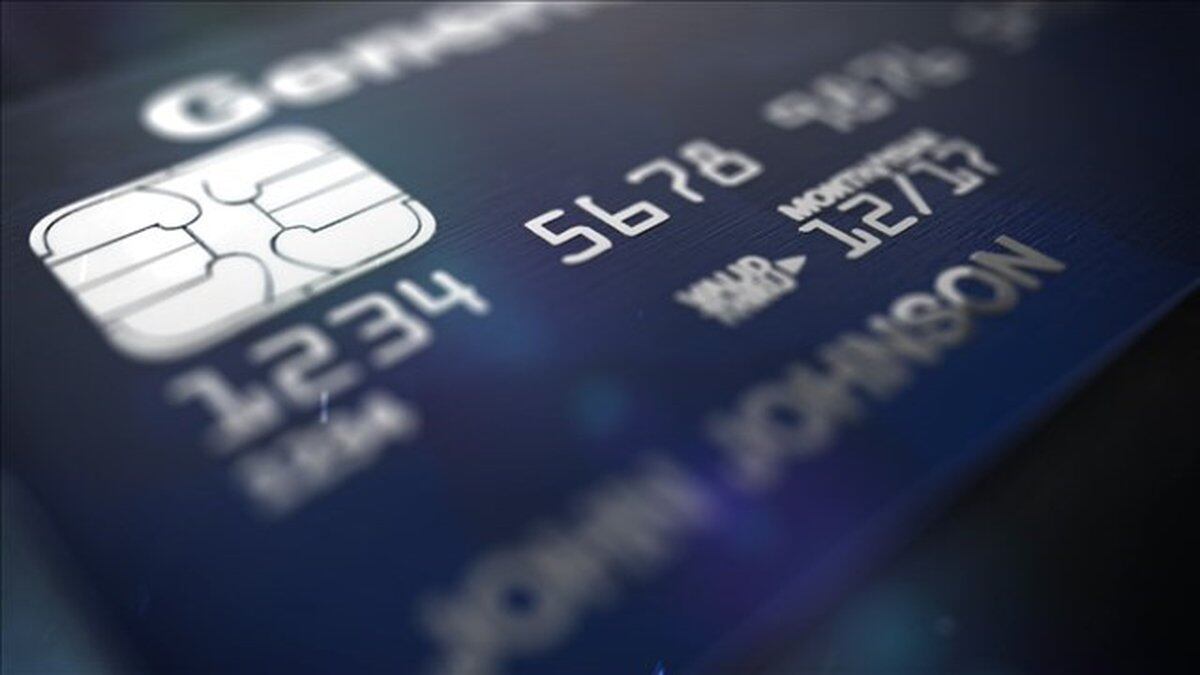

Finance
How To Dispute Credit Card Late Fee
Published: February 23, 2024
Learn how to dispute credit card late fees and protect your finances with our expert tips. Take control of your finances and avoid unnecessary charges.
(Many of the links in this article redirect to a specific reviewed product. Your purchase of these products through affiliate links helps to generate commission for LiveWell, at no extra cost. Learn more)
Table of Contents
**
Introduction
**
Late fees on credit card statements can be frustrating and financially burdensome. However, many consumers are unaware that they have the right to dispute these charges if they believe they are unjustified. Understanding the process of disputing credit card late fees is crucial for anyone who has been unfairly penalized by their credit card company. This article will provide a comprehensive guide to help you navigate the steps involved in disputing credit card late fees, empowering you to take control of your financial well-being.
Disputing a credit card late fee is not only about seeking a refund; it is also about asserting your rights as a consumer. By familiarizing yourself with the process and arming yourself with the necessary information, you can effectively challenge unjust late fees and potentially save yourself a significant amount of money. This guide will walk you through the essential steps of disputing credit card late fees, from reviewing your credit card statement to submitting a formal dispute and following up with your credit card company.
Whether you have been charged a late fee due to a genuine oversight or an error on the part of the credit card company, understanding how to dispute these charges is a valuable skill. It is important to approach the process with patience, diligence, and a clear understanding of your rights. By following the steps outlined in this guide, you can navigate the dispute process with confidence and increase the likelihood of a successful outcome.
In the following sections, we will delve into the intricacies of disputing credit card late fees, providing you with practical insights and actionable steps to help you effectively challenge these charges. Understanding the nuances of this process will not only equip you to dispute late fees but also empower you to advocate for fair and transparent treatment as a consumer. Let's embark on this journey to unravel the process of disputing credit card late fees and reclaim control over your financial well-being.
Understanding Credit Card Late Fees
Before delving into the dispute process, it’s crucial to grasp the fundamentals of credit card late fees. When a credit card payment is not made by the due date, the cardholder may incur a late fee. This fee is typically outlined in the credit card agreement and can vary among different issuers. Late fees are imposed as a penalty for failing to make the minimum payment on time and can significantly impact the cardholder’s finances.
It’s important to review your credit card agreement to understand the specific late fee structure associated with your card. Typically, late fees can range from a fixed amount to a percentage of the overdue payment. Additionally, some credit card companies may offer a grace period, allowing a certain number of days after the due date before the late fee is assessed. Understanding these details can provide insight into the potential financial implications of a late payment.
Beyond the immediate financial impact, late fees can also have long-term consequences. A history of late payments can negatively affect your credit score, making it more challenging to secure favorable terms on future credit products. Therefore, addressing and disputing unjust late fees is not only about the immediate financial relief but also about safeguarding your long-term financial well-being.
By comprehending the rationale behind credit card late fees and their potential ramifications, you can approach the dispute process with a clear understanding of the stakes involved. This understanding forms the foundation for effectively navigating the subsequent steps in disputing credit card late fees.
Reviewing Your Credit Card Statement
Before initiating a dispute over a credit card late fee, it’s essential to thoroughly review your credit card statement. This step serves as the initial assessment of the circumstances surrounding the late fee and provides the basis for your dispute. When reviewing your statement, pay close attention to the following key details:
- Payment Due Date: Verify the original due date for the payment in question. Ensure that you have a clear understanding of when the payment was due and whether any factors, such as weekends or holidays, may have impacted the processing timeline.
- Payment History: Evaluate your past payment history to determine if there have been any previous instances of late payments. Consistent on-time payments can strengthen your position when disputing a late fee.
- Late Fee Assessment: Identify the specific late fee charged and the date it was applied to your account. Understanding the amount and timing of the late fee is crucial for building your case during the dispute process.
- Communication Records: If you have received any communication from the credit card company regarding the late payment, such as reminders or notifications, gather and review these correspondences. They can provide valuable evidence to support your dispute.
As you review your credit card statement, it’s important to approach the process with a meticulous eye for detail. Look for any discrepancies, errors, or extenuating circumstances that may have contributed to the late payment. Additionally, take note of any relevant terms and conditions outlined in your credit card agreement, as these can serve as a reference point during the dispute.
By thoroughly examining your credit card statement, you can gain a comprehensive understanding of the circumstances leading to the late fee. This insight forms the groundwork for gathering evidence and presenting a compelling case when disputing the charge with your credit card company.
Gathering Evidence
When disputing a credit card late fee, the strength of your case hinges on the evidence you can provide to support your claim. Gathering relevant evidence is a critical step in the dispute process and can significantly bolster your position. Here are essential measures to consider when gathering evidence to support your dispute:
- Payment Records: Collect documentation of your payment history, including receipts, bank statements, or transaction records that demonstrate your consistent adherence to payment deadlines. This evidence can serve as proof of your responsible payment behavior.
- Communication Records: Preserve any communication exchanged with the credit card company, such as emails, letters, or notes from phone calls. These records can illustrate your attempts to address the late payment and any relevant correspondence from the credit card issuer.
- Credit Card Agreement: Refer to the terms and conditions outlined in your credit card agreement. Highlight any clauses or provisions that pertain to late payments, grace periods, or dispute resolution. This document can serve as a valuable reference point to support your position.
- Calendar Records: If applicable, provide evidence of any extenuating circumstances that may have contributed to the late payment, such as medical emergencies, natural disasters, or technical issues. Documentation of these events can lend credibility to your dispute.
By meticulously gathering and organizing relevant evidence, you can construct a compelling case to present to your credit card company. Clear and substantiated evidence not only strengthens your position but also demonstrates your commitment to resolving the issue in a fair and transparent manner.
As you compile your evidence, consider presenting it in a structured and coherent manner, highlighting key points that directly relate to the disputed late fee. This approach can streamline the dispute process and facilitate a more efficient review of your case by the credit card company.
Armed with well-documented evidence, you are better equipped to articulate your dispute and increase the likelihood of a favorable resolution. The next step involves leveraging this evidence to initiate contact with your credit card company and formally dispute the late fee.
Contacting Your Credit Card Company
Once you have reviewed your credit card statement and gathered compelling evidence to support your dispute, the next pivotal step is to initiate contact with your credit card company. When reaching out to the issuer, it’s important to approach the communication with clarity, professionalism, and a focus on resolving the issue amicably. Here are essential considerations when contacting your credit card company to dispute a late fee:
- Identify the Correct Department: Ensure that you direct your communication to the appropriate department responsible for handling disputes or customer inquiries. This may involve contacting the customer service division or a dedicated disputes resolution unit within the credit card company.
- Provide a Detailed Account: Clearly articulate the circumstances surrounding the late fee, referencing specific details from your credit card statement and the evidence you have gathered. Present a factual and objective account of the situation, avoiding emotional language or unsubstantiated claims.
- Attach Supporting Evidence: If possible, include copies of the evidence you have gathered, such as payment records, communication exchanges, and relevant sections of your credit card agreement. This documentation reinforces the validity of your dispute and provides the credit card company with a comprehensive overview of your case.
- Request a Review: Politely request a thorough review of the late fee and emphasize your commitment to resolving the matter in a fair and equitable manner. Express your willingness to cooperate and provide any additional information necessary to facilitate the review process.
When communicating with your credit card company, it’s important to maintain a respectful and composed demeanor, even if you feel frustrated by the late fee. Professionalism and courtesy can enhance the receptiveness of the credit card company to your dispute and contribute to a constructive dialogue aimed at reaching a resolution.
It’s advisable to document all interactions with the credit card company, including the date and time of your communication, the individuals you spoke with, and a summary of the discussion. This record-keeping can serve as a valuable reference in the event of further escalation of the dispute.
By initiating contact with your credit card company in a clear, organized, and professional manner, you set the stage for a constructive dialogue aimed at resolving the late fee dispute. The next phase involves formalizing your dispute through a structured submission to the credit card company.
Submitting a Formal Dispute
After initiating contact with your credit card company and presenting the details of your dispute, the formal submission of a dispute is a crucial step in the process. This formalization provides a structured framework for the credit card company to review and assess your case. When submitting a formal dispute over a credit card late fee, consider the following key elements:
- Compose a Clear and Concise Letter: Prepare a formal letter outlining the specifics of your dispute, including the relevant dates, the amount of the late fee, and a summary of the evidence you have gathered. Present your case in a clear, organized, and articulate manner, focusing on factual details and avoiding emotional language.
- Reference Supporting Evidence: Include copies of the evidence you have gathered, such as payment records, communication exchanges, and pertinent sections of your credit card agreement. These documents serve to substantiate your dispute and provide the credit card company with a comprehensive overview of your position.
- Request a Detailed Review: Explicitly request a thorough review of the late fee and emphasize your commitment to resolving the matter equitably. Encourage the credit card company to consider the evidence presented and provide a transparent assessment of the dispute.
- Set a Reasonable Timeline: In your letter, establish a reasonable timeline for the credit card company to respond to your dispute. This timeline should allow sufficient time for a comprehensive review while demonstrating your expectation of a timely resolution.
When composing your formal dispute letter, it’s essential to maintain a professional and respectful tone, fostering a cooperative atmosphere for the resolution process. Clearly articulate your desire for a fair and transparent assessment of the late fee and express your willingness to provide any additional information necessary to facilitate the review.
Upon completing the formal dispute letter, retain a copy for your records before submitting it to the credit card company. This documentation serves as a reference point and can be valuable in the event of further escalation or follow-up on the dispute.
By submitting a formal dispute, you provide the credit card company with a structured representation of your case, supported by evidence and a clear request for review. The formalization of your dispute sets the stage for a comprehensive assessment and represents a proactive step toward resolving the late fee issue.
Following Up on Your Dispute
After submitting a formal dispute over a credit card late fee, proactive follow-up can play a pivotal role in ensuring that your case receives the attention it deserves. Effective follow-up communication demonstrates your commitment to resolving the dispute and can prompt a timely review by the credit card company. Here are essential steps to consider when following up on your dispute:
- Establish a Timeline: Set a reasonable timeline for the credit card company to respond to your formal dispute. This timeline should allow for a thorough review while signaling your expectation of a timely resolution.
- Polite Inquiry: If the specified timeline has elapsed without a response from the credit card company, consider sending a polite inquiry to inquire about the status of your dispute. Express your continued interest in resolving the matter and request an update on the review process.
- Document Communication: Maintain a record of all follow-up communication, including the date and time of your inquiries, the individuals you interacted with, and a summary of the discussions. This documentation can serve as a reference point in the event of further escalation or as evidence of your proactive engagement in the dispute resolution process.
- Persistence and Patience: While being persistent in following up on your dispute is important, it’s equally crucial to exercise patience as the credit card company reviews your case. Recognize that the review process may take time, and remain composed and courteous in your interactions.
When following up on your dispute, it’s essential to maintain a professional and respectful demeanor, fostering a cooperative atmosphere for the resolution process. By demonstrating your proactive engagement and continued interest in resolving the late fee issue, you reinforce the significance of the matter to the credit card company.
If the credit card company requests additional information or documentation during the review process, promptly provide the requested materials to facilitate a thorough assessment of your dispute. Open and responsive communication can expedite the resolution process and contribute to a favorable outcome.
By actively following up on your dispute, you underscore the importance of a fair and transparent review of the late fee and convey your commitment to achieving a resolution. Your persistent yet courteous engagement can prompt the credit card company to prioritize the review of your case and provide a timely response.
Conclusion
Disputing a credit card late fee is a process that requires diligence, organization, and a clear understanding of your rights as a consumer. By familiarizing yourself with the steps involved in disputing a late fee and arming yourself with the necessary evidence, you can effectively challenge unjust charges and advocate for fair treatment from your credit card company. This comprehensive guide has provided valuable insights into the process of disputing credit card late fees, empowering you to navigate this endeavor with confidence and determination.
Understanding the fundamentals of credit card late fees, reviewing your credit card statement, and gathering compelling evidence are foundational steps that lay the groundwork for a successful dispute. Initiating contact with your credit card company in a professional and clear manner, followed by the formal submission of a dispute, demonstrates your commitment to resolving the issue and sets the stage for a comprehensive review of your case.
Proactive follow-up on your dispute reinforces the significance of the matter and prompts the credit card company to prioritize the review process, potentially expediting a resolution. Throughout this journey, maintaining a respectful and composed demeanor, even in the face of frustration, is key to fostering a cooperative atmosphere for the dispute resolution process.
Ultimately, disputing a credit card late fee is not only about seeking a refund; it is about asserting your rights, advocating for fair treatment, and safeguarding your financial well-being. By leveraging the insights and strategies outlined in this guide, you have equipped yourself to navigate the dispute process with clarity and determination, increasing the likelihood of a favorable outcome.
As you embark on this journey, remember that your proactive engagement, supported by compelling evidence and clear communication, can significantly influence the resolution of your dispute. By advocating for fair and transparent treatment, you contribute to a consumer landscape that values integrity and accountability.
Armed with the knowledge and strategies presented in this guide, you are well-prepared to navigate the dispute process with confidence, advocate for your rights, and pursue a resolution that upholds fairness and equity.














